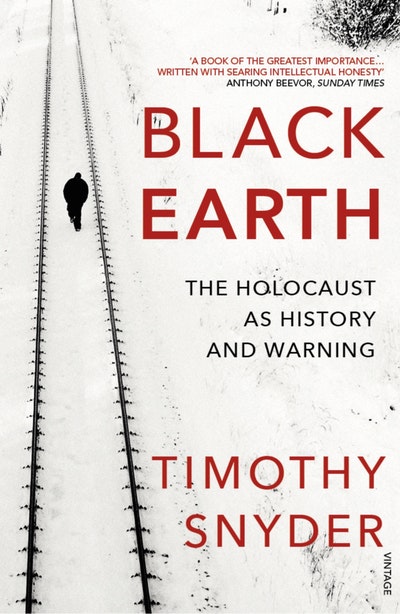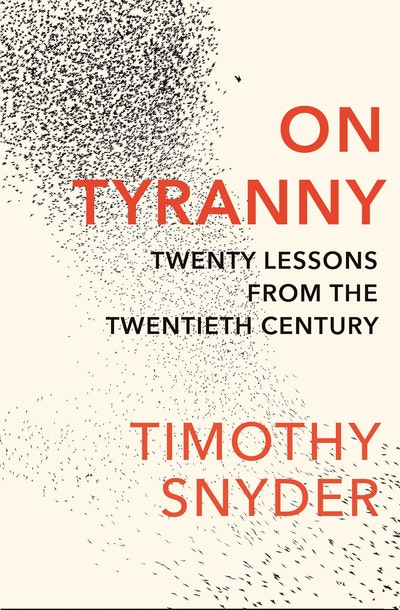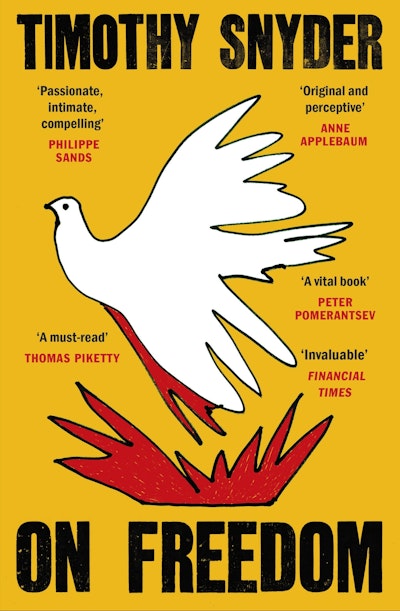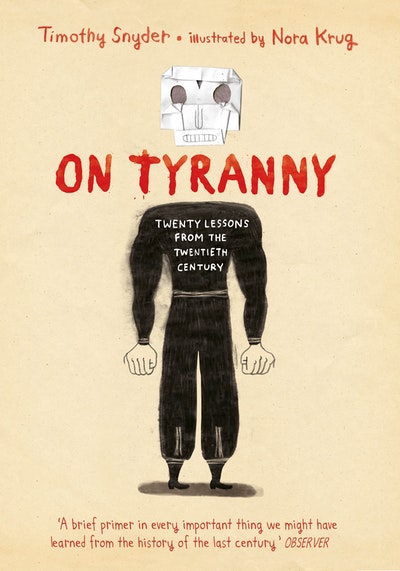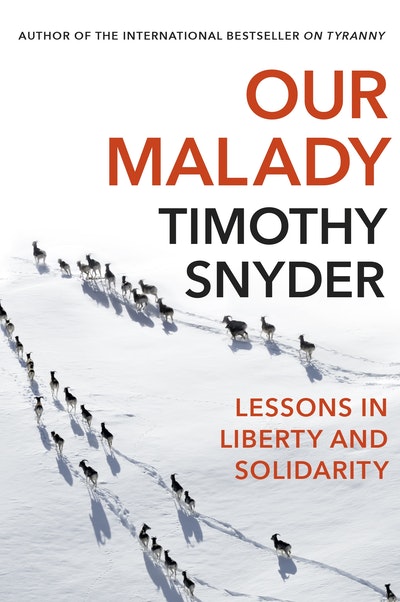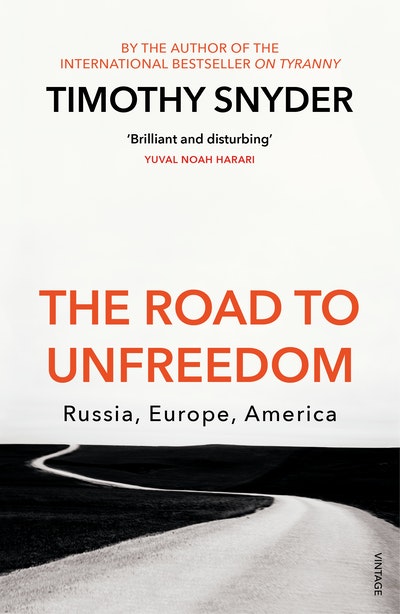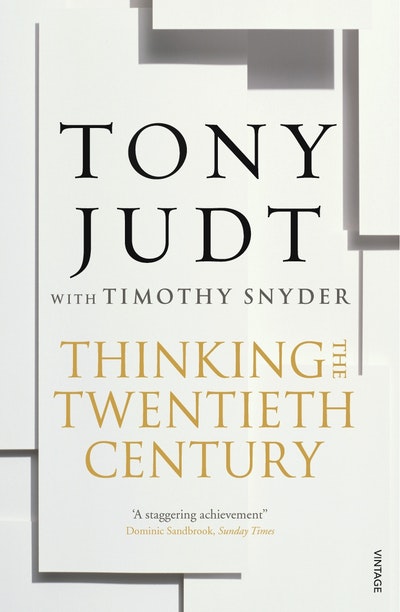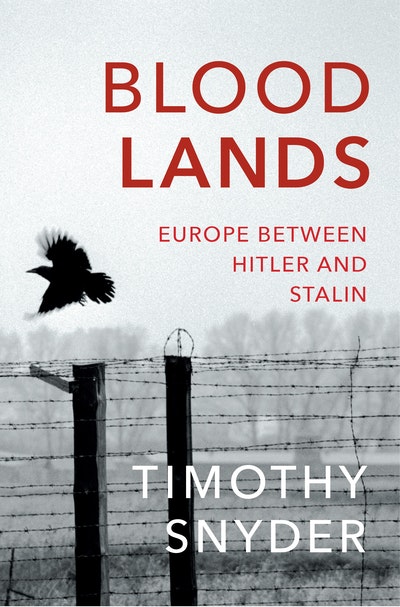Black Earth
The Holocaust as History and Warning
- Published: 17 September 2015
- ISBN: 9781473522701
- Imprint: Vintage Digital
- Format: EBook
- Pages: 480
In this unusual and innovative book, Timothy Snyder takes a fresh look at the intellectual origins of the Holocaust, placing Hitler's genocide firmly in the politics and diplomacy of 1930s Europe. Black Earth is required reading for anyone who cares about this difficult period of history
Anne Applebaum
Timothy Snyder's bold new approach to the Holocaust links Hitler's racial worldview to the destruction of states and the quest for land and food. This insight leads to thought-provoking and disturbing conclusions for today's world. Black Earth uses the recent past's terrible inhumanity to underline an urgent need to rethink our own future
Ian Kershaw
Part history, part political theory, Black Earth is a learned and challenging reinterpretation
Henry A. Kissinger
Black Earth is provocative, challenging, and an important addition to our understanding of the Holocaust. As he did in Bloodlands, Timothy Snyder makes us rethink those things we were sure we already knew
Deborah Lipstadt
Timothy Snyder’s Black Earth is not only a powerful exposure of the horrors of the Holocaust but also a compelling dissection of the Holocaust’s continuing threat
Zbigniew Brzezinski
Timothy Snyder is now our most distinguished historian of evil. Black Earth casts new light on old darkness. It demonstrates once and for all that the destruction of the Jews was premised on the destruction of states and the institutions of politics.I know of no other historical work on the Holocaust that is so deeply alarmed by its repercussions for the human future. This is a haunted and haunting book—erudite, provocative, and unforgettable
Leon Wieseltier
Timothy Snyder argues, eloquently and convincingly, that the world is still susceptible to the inhuman impulses that brought about the Final Solution. This book should be read as admonition by presidents, prime ministers, and in particular by anyone who believes that the past is somehow behind us
Jeffrey Goldberg
Always readable, highly sophisticated, and strikingly original
Bernard Wasserstein, Jewish Chronicle
A wholly readable and utterly persuasive attempt to get us to look at the Holocaust in a different light. I read it twice, aghast but gripped by the moral abyss into which I was plunged on each page
Observer
Black Earth is mesmerizing
Edward Rothstein, Wall Street Journal (Europe)
an engrossing and often thought-provoking analysis of Hitler’s antisemitic ideology and an intelligently argued country-by-country survey of its implementation between 1939 and 1945
Richard J Evans, Guardian
A masterful work
Spectator
A passionate and semi-polemical account
David Aaronovitch, The Times
a wholly readable and utterly persuasive attempt to get us to look at the Holocaust in a different light
Nick Fraser, Observer
this is a deeply insightful and original treatment and, as the Holocaust drifts slowly but surely from living memory and into history, a warning against future complacency
John Owen, History Today
Snyder excels in repositioning the Holocaust in a global context
Joanna Bourke, New Statesman
Timothy Synder reorientates our understanding of the ideological structures and political circumstances that made the Nazis’ genocidal programme possible ·
John Owen, History Today
To his recalibration of the conventional topography and chronology of the Holocaust, Snyder adds a novel interpretation of Hitler’s worldview and of the place of Jews in it
Jonathan Derbyshire, Prospect
Snyder delivers what is surely the best and most unsparing analysis of eastern European collaborationism now available.
Richard J Evans, Guardian
As our world fragments and dissolves into chaos, Snyder offers a chilling lesson about how easy it is for people to slip into evil and bloodlust.
Catholic Herald
a book of the greatest importance… written with searing intellectual honesty.
Anthony Beevor, Sunday Times
Snyder's extraordinary book may be about events more than seventy years ago, but its lessons about human nature are as relevant now as then
Rebecca Tinsley, Independent Catholic News
Disturbing but utterly compelling... The how’s and whys of what happened have never been better explained.
Simon Shaw, Mail on Sunday
Highly praised, and indeed it is a worthy contribution to the subject.
Ruth Ginarlis, Nudge
